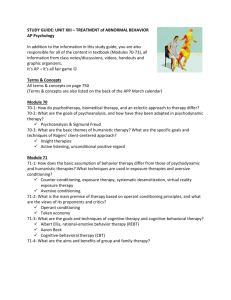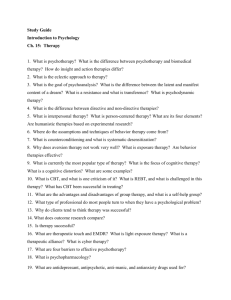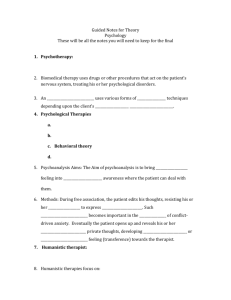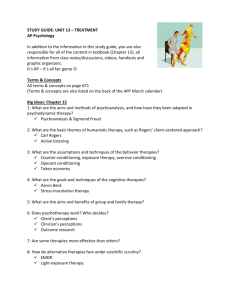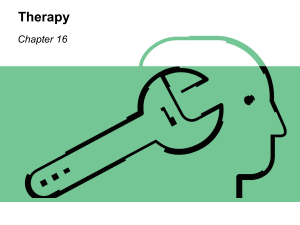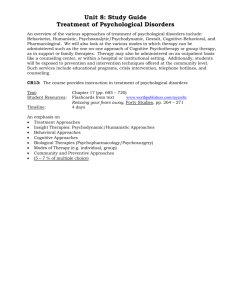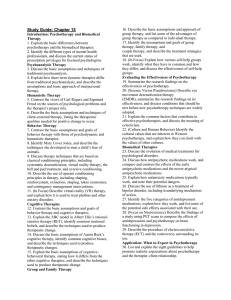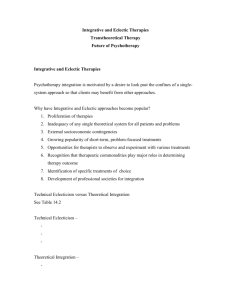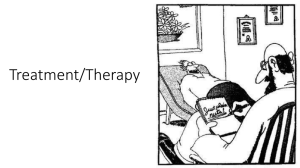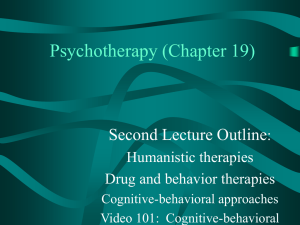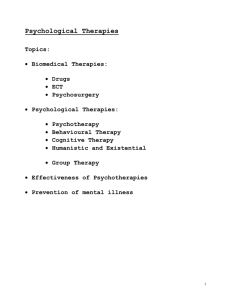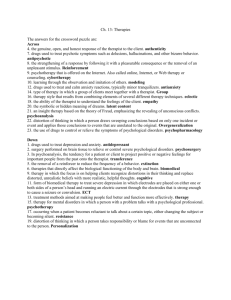Unit 12: Treatment of Psychological Disorders Date Topic
advertisement
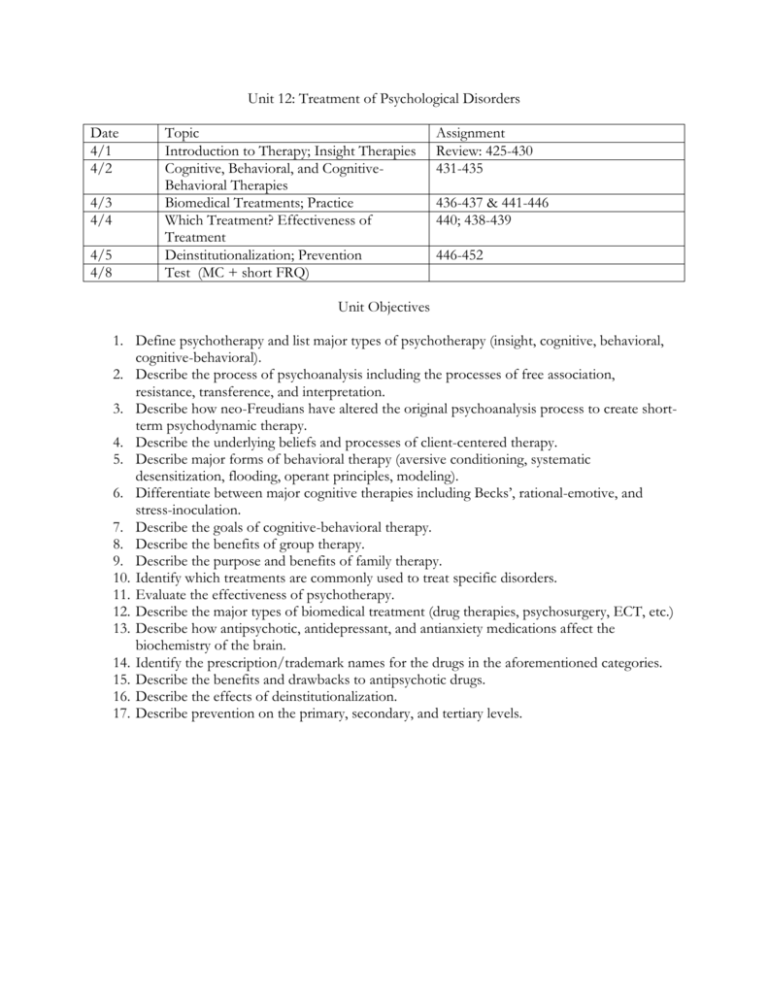
Unit 12: Treatment of Psychological Disorders Date 4/1 4/2 4/3 4/4 4/5 4/8 Topic Introduction to Therapy; Insight Therapies Cognitive, Behavioral, and CognitiveBehavioral Therapies Biomedical Treatments; Practice Which Treatment? Effectiveness of Treatment Deinstitutionalization; Prevention Test (MC + short FRQ) Assignment Review: 425-430 431-435 436-437 & 441-446 440; 438-439 446-452 Unit Objectives 1. Define psychotherapy and list major types of psychotherapy (insight, cognitive, behavioral, cognitive-behavioral). 2. Describe the process of psychoanalysis including the processes of free association, resistance, transference, and interpretation. 3. Describe how neo-Freudians have altered the original psychoanalysis process to create shortterm psychodynamic therapy. 4. Describe the underlying beliefs and processes of client-centered therapy. 5. Describe major forms of behavioral therapy (aversive conditioning, systematic desensitization, flooding, operant principles, modeling). 6. Differentiate between major cognitive therapies including Becks’, rational-emotive, and stress-inoculation. 7. Describe the goals of cognitive-behavioral therapy. 8. Describe the benefits of group therapy. 9. Describe the purpose and benefits of family therapy. 10. Identify which treatments are commonly used to treat specific disorders. 11. Evaluate the effectiveness of psychotherapy. 12. Describe the major types of biomedical treatment (drug therapies, psychosurgery, ECT, etc.) 13. Describe how antipsychotic, antidepressant, and antianxiety medications affect the biochemistry of the brain. 14. Identify the prescription/trademark names for the drugs in the aforementioned categories. 15. Describe the benefits and drawbacks to antipsychotic drugs. 16. Describe the effects of deinstitutionalization. 17. Describe prevention on the primary, secondary, and tertiary levels. Vocab 1. 2. 3. 4. 5. 6. 7. 8. 9. 10. 11. 12. 13. 14. 15. 16. 17. 18. 19. 20. 21. 22. 23. 24. 25. Names Psychotherapy Insight therapies Psychoanalysis Free Association Resistance Interpretation Transference Short-term psychodynamic therapy Eclectic Approach Client-Centered Therapy Active listening Behavior Therapy: Systematic Desensitization, Flooding , Aversive Conditioning Cognitive Therapies: Becks’ Therapy, Stress-Inoculation Therapy, RationalEmotive Therapy Cognitive-Behavioral Therapy Family Therapy Group Therapy Biomedical therapy/Biological Treatments Antipsychotic drugs Tardive dyskinesia Antianxiety drugs Antidepressants Electroconvulsive Therapy Psychosurgery/Neurosurgery Deinstitutionalization Prevention: Primary, Secondary, and Tertiary Prevention Designated Review Unit: Unit 6 – Cognition 1. 2. 3. 4. 5. 6. Aaron Beck Albert Ellis Sigmund Freud Mary Cover Jones Carl Rogers Joseph Wolpe
